India’s Crackdown on Paytm Bank After Years of Warnings

I am a law graduate from NLU Lucknow. I have a flair for creative writing and hence in my free time work as a freelance content writer.

I am a law graduate from NLU Lucknow. I have a flair for creative writing and hence in my free time work as a freelance content writer.
India’s move to cap digital payments within the nation has drawn flak from all quarters. Global tech mogul Google on Friday expressed its discontent regarding the new rule, which will make things difficult for its payment portal- Google Pay. India recently decided to put a cap on the amount or share of financial transactions facilitated by payment platforms. Google stated that curtailing the freedom of such platforms would hinder India’s growing digital payments economy. In this article, we will take a look at the new rule brought out by India, and how it can impact digital payments.
Google’s criticism came as a result of a new rule passed by the Indian government. The National Payments Corp of India released a notice on Thursday regarding how third-party payment platforms will process only 30% of all UPI transactions from January 1, 2021. The NCPI is India’s flagship UPI payment-processing platform. The UPI framework has grown in popularity in India over the last few years due to its ability to facilitate easy and seamless transactions. The new rule will prevent third-party apps from cornering the market as it puts a threshold based on the total volume of financial transactions occurring within India.
Such a move will restrict the growth of other payment services, such as the ones offered by Google, Walmart, and Facebook. However, it will help accelerate the development of portals hosted by Reliance Jio and SoftBank’s Paytm, both of which have bank permits. As per NPCI records, over 2.07 billion UPI transactions were made in October. Walmart-owned PhonePe processed over 40% of such transactions, whereas Google Pay came in a close second. PhonePe processed over 83.5 crore transactions in October while, Google Pay facilitated around 82 crore transactions. They were followed by a dozen other platforms splitting the rest of the market share. Both GPay and PhonePe exceed the cap set by the NPCI and will receive two years to maintain compliance with the new laws.
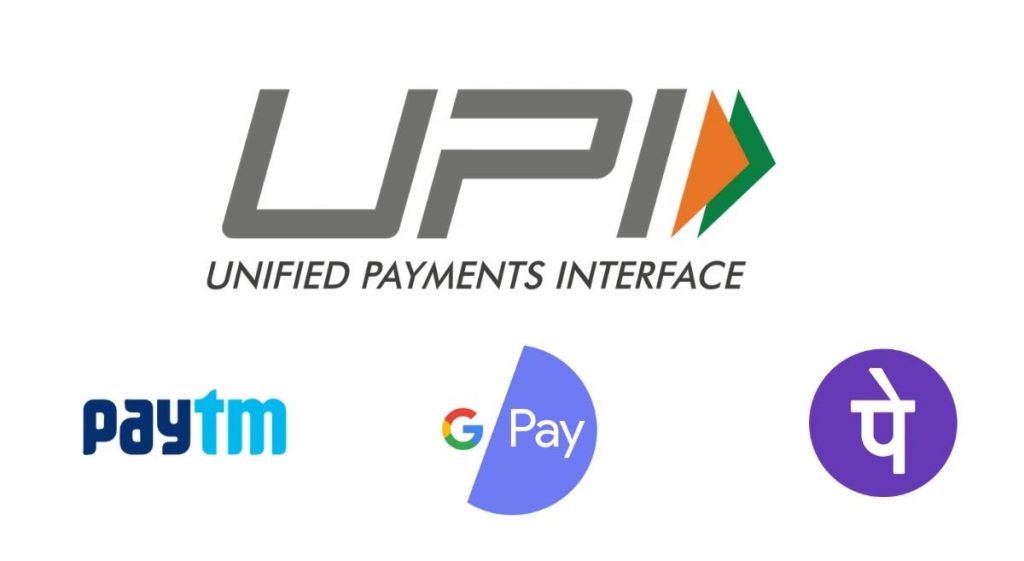
Sajith
Sivanandan, who serves as the Business Head of GPay, said that such a move was
very unexpected. He went on to say that it would have an impact on hundreds of
millions of users, leading to a drop in the adoption of UPI payments in the
country. However, the new laws will not have an impact on Jio Payments Bank and
Paytm as they do not come under the category of third-party apps. Certain experts
said that such a move gives stimulus to the theory that the government is
pitting foreign players against Indians. They questioned the NPCI’s move to
place a cap on third-party platforms and not all platforms on the whole.
However,
as expected, the spokesman for Paytm said that such a move would help grow the
UPI infrastructure in India. They went on to say that the new rules would help
de-risk and diversify the UPI transactions market in the country. PhonePe CEO,
Sameer Nigam said that the company would try its best to ensure that the new
rule does not disrupt UPI services for its customers.
The new
rule came out right after NPCI finally permitted Facebook-owned WhatsApp to
begin a payment service in India. The authority had cleared the roll-out of
such a service in a limited capacity to over 20 million users. While the
long-awaited approval came as a sigh of relief for the company, the new rule
will inhibit their growth prospects. While WhatsApp has a customer base of over
400 million users, this new rule will create problems for the company. However,
the company welcomed the approval by stating that the combination of WhatsApp
and UPI would help India’s rural population participate more freely in the
digital economy.
Such a
move has been in the works since 2019, wherein the cap was supposed to be at
50% in the first year, and reduced to 40% in the second year. However, the NPCI
has gone ahead with a flat rate for the cap but giving companies two years to
comply with the regulations.
Ram Rastogi, who is a
former NPCI executive, stated that the new move would help foster healthy
competition. He ventured to say that since PhonePe and GPay together accounted
for almost 80% of the market, bringing in such a cap would help diversify the
market. Furthermore, experts believe that such a move would also help the
government prevent cybersecurity threats. Also, more competition would help
make the market less vulnerable, while also allowing the authorities better
controls over the market.

Being a cinephile with a love for all things outdoorsy, Athulya never misses a chance to chase inspiring stories or poke fun at things, even when the subject is herself. Currently pursuing a degree in mechanical engineering, she is someone innately interested in technical and scientific research. Music reviews and op-eds define her as they allow her to explore different perspectives. Though sometimes she thinks she makes more sense playing the guitar than she does while writing.
Last week, Indians witnessed chaos between Paytm and Google when the latter took down the Paytm app from Google Play Store. With the Indian Premier League starting a few weeks back, many companies and their respective apps have unlocked new features and cricket-themed prizes. Paytm also launched such cricket-themed cashback for its customers which led Google to accuse it of sports betting. After the Paytm app was back again in the Play Store, the current CEO and co-founder of Paytm, Vijay Shekhar Sharma accused Google of being biased and it was just a move put resistance to Paytm’s new user growth.
Paytm has given Google a very bold comeback yesterday by launching its own Mini App Store. The company decided to open its app store to help and grow Indian developers giving them a lot of scopes to establish their business and grow. Vijay further said that they are proud to create such an amazing opportunity for every Indian developer. It will be a good experience for both the developers and Paytm users.
Before last week, Google has accused Paytm a few times of sports betting and not going by the guidelines. But, after what happened the last time, Vijay has not taken the accusation lightly. Currently, the two companies are on a battlefield and yesterday Paytm played its big move. Paytm launched its Android mini app store for the Indian developers. In this time of such an economic crisis, every person should try and make the best of the time and try to stabilize the economy. Given that the new start-ups and small businesses are significant contributors to GDP, this is a well-played move indeed.
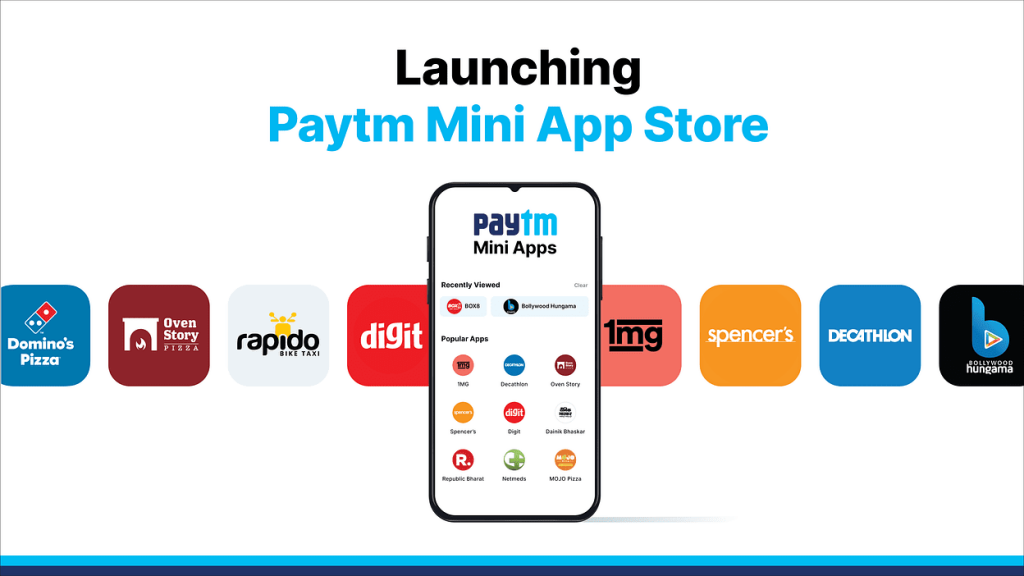
According to the company, these mini-apps can be made using HTML and JavaScript and run within two weeks only. Two developers can complete the integration of the web within a small period. The company also says that these apps will act more like websites for the time being and not full-fledged apps. The mini-apps will also help users save their memory and data as well. For the Paytm users, they don’t need to download an additional app to access these new mini-apps.
Regarding the payment options, the Paytm Wallet, Paytm Payments Bank, and UPI are already incorporated in the system. To use these payment systems, zero percent fees are charged which is a huge advantage for the developers. There is also an option for payment with a credit card, debit card, and net banking but a 2% along with GST will be added. Using this platform of Paytm’s the young developers can reach out to more people and also take the advantage of leveraging Paytm’s payment system.
It is clearly understood that even if Paytm wasn’t planning to launch its mini play store or maybe not anytime soon, Google triggered the decision. But, with the gambling policies enforced on the apps present in Google Play Store, many other companies are also disappointed with Google’s action. The new guidelines from Google have also resulted in withdrawing sport-based cashback offers from Zomato and Swiggy. India is a land of cricket lovers and this new offer brought in many fresh customers especially due to IPL. But, unfortunately, the offer has now been taken off the websites leading to a decrease in new users.
It is time to focus on what the future awaits. The company expects the rolling out of the Paytm mini app store to be a big hit. Indian developers should see this as a humungous opportunity as it also falls under the Atmanirbhar Bharat mission drive. It would be a huge benefit for both the local business and the Indian economy if every small start-up goes digital. Moreover, Indians are also showing interesting in buying from local retailers thus supporting small businesses. Paytm already has around 300 mini-apps in the Paytm and soon the numbers will increase. Some of the apps include Ola, Rapido, Domino’s, NetMeds, etc.
Since this is a new feature rolled out by Paytm, it will hold a conference on 8th October 2020 to help understand the developers how this works. Now, let us just wait and watch how far it can give a tough competition to Google.

Annasha Dey is an NIT student, who apart from studying engineering is also a content writer. She has a great interest in photography, writing, reading novels, and travelling as well. She is a foodie who loves socializing and hanging out with her friends. She is also a trained Kathak dancer and a big fashion enthusiast. Dey also loves watching TV series, which includes F.R.I.E.N.D.S. and Big Bang Theory. To be a better writer she prefers to read more
Earlier on 18th September 2020, Google took down Paytm, India’s most reliable and valuable digital payment app from Play Store. Google accused Paytm of violating the Play Store gambling policies and thus the app disappeared from the Play Store all of a sudden. Paytm has a monthly active user base of 50 million thus becoming Google Pay the biggest competitor in the country. Paytm accused Google of restricting the financial service app from adding new users. Let’s have a more detailed look into this.
Sports betting is banned in India. But, escaping the strong vigilance, many online sites arrange sports betting illegally. According to Google, Play Store doesn’t allow online casinos in its list and other gambling apps that promote and welcome users for sports betting in India. TechCrunch was informed by two unnamed people that Paytm has introduced a fantasy sports service (Paytm First Games) in its marquee app that violated many times the policies of the Play Store.
The Android-maker also maintains similar guidelines around gambling. There are many apps made by Indian companies that lead the users to an external website where one can participate in paid tournaments and betting related to sports in India. And, all such apps violet the policies of Google Play Store thus bringing doom on themselves. Suzanne Frey, VP, Product, Android Security, and Privacy, wrote in a blog post that the rules are made to protect users from potential harm that can be caused by these misleading apps. She also further mentioned that even after warning the developer if the app is not brought into compliance it might also result in permanently terminating the Google Play Developers account.
After Paytm was taken down by Google, Paytm tweeted addressing all its users that the app is temporarily unavailable and it will be back soon. The company also assured that all the money is safe and they don’t need to worry.
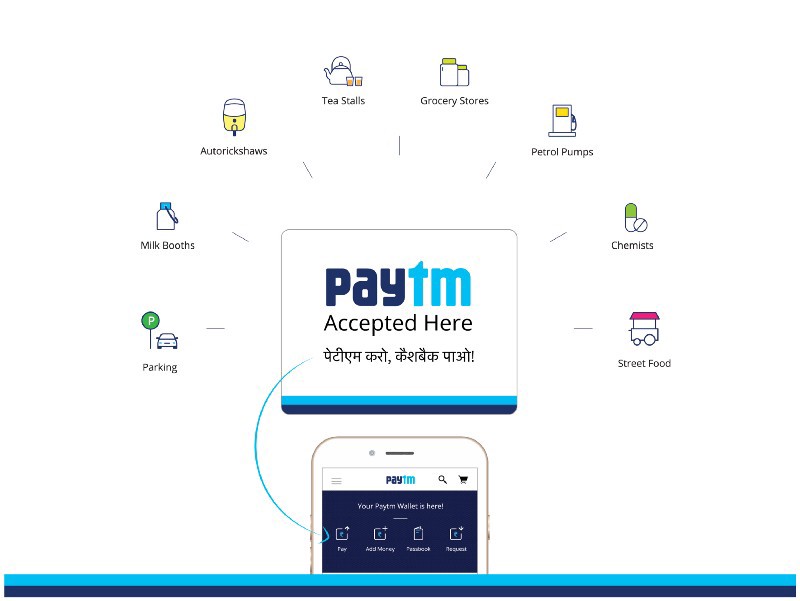
Google taking down Paytm accused of illegal sports betting might be a loud and clear message to all developers across the country. Since India is a country with a huge base of cricket lovers and IPL that started on 19th September, it might be a gentle warning. Google wanted to warn everyone that the betting policies of the Play Store should be taken seriously. The previous seasons of IPL have witnessed the interest of millions of Indians in such apps where they can participate in sports betting.
Apart from Paytm, Google has also asked Disney+ Hotstar to display a warning before showing ads of fantasy sports app.
Vijay Shekhar Sharma, co-founder and CEO of Paytm in response to this accusation by Google said that Google is not allowing Paytm to acquire new users. Google took down the app of Paytm hours after it rolled out cricket-themed scratch cards for cashback. He said that though Google has previously raised concern about Paytm First Games, this time it was about “nothing but” provided cashback to the users. He further said if cashback is the issue, the same rule should apply for Google Pay and PhonePe as well. The company has pulled the new feature and revised the app’s current version.
In response to Google taking down Paytm, FIFS (Federation of Indian Fantasy Sports) said that it has launched a complaint to Google about allowing some big companies like Paytm to launch and promote cash contest. The FIFS said that the guidelines of Google regarding Fantasy Sports should be imposed on everyone equally.
The app was taken down from Play Store on Friday morning. It was back again in the evening after the company submitted its regulated version of the app to Play Store. The app was banned as the company rolled out a new feature called “Paytm Cricket League”, a day before IPL. The CEO of the company said the feature was cricket-themed cashback for users but Google said it violated policies against “simulated gambling content”. Though Google says Paytm violated policies, some industry experts are looking at it as a potential conflict of interest as Paytm is Google Pay’s biggest rival in the country.

Annasha Dey is an NIT student, who apart from studying engineering is also a content writer. She has a great interest in photography, writing, reading novels, and travelling as well. She is a foodie who loves socializing and hanging out with her friends. She is also a trained Kathak dancer and a big fashion enthusiast. Dey also loves watching TV series, which includes F.R.I.E.N.D.S. and Big Bang Theory. To be a better writer she prefers to read more
Online banking and payment apps have made life a lot easier, and the rewards we get on the payments are a plus. Paytm being the earliest and the biggest player in the country has been the most used payment app. But with the arrival of other payment apps, the former has to face some good losses. Reportedly, Paytm’s parent company has suffered a 165% extended loss for the financial year that ended on 31st March.
The company reported a total of Rs 3959 crore ($549 million) loss which is triple times up its last year’s losses, i.e., 1490 crore ($206 million). Going further, collectively, One97 Communication, including its other business, had to suffer a loss of Rs 4217.20 crore ($584 million), which is way above its last year’s losses, and that is Rs 1604.34 crore ($222 million).
“The company has incurred huge capital expenditure in creating a brand and establishing its business activity. We have incurred a considerable amount in various capital & operational expenditures which resulted in losses during the financial year,” said the company in the annual report.
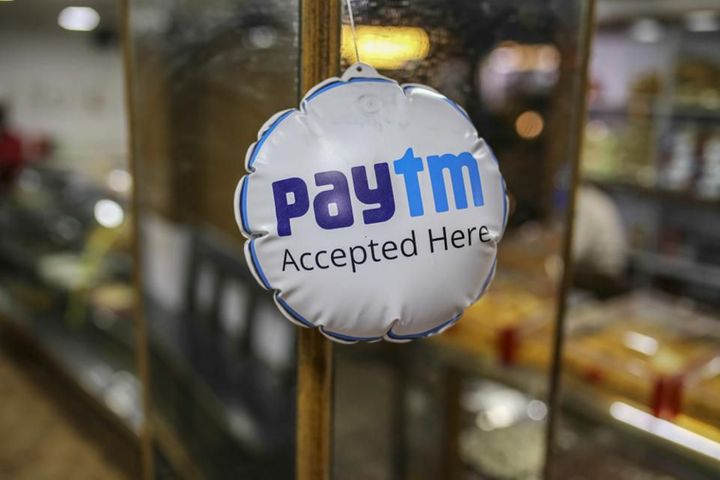
Despite the losses, even the revenue of the company is up from its last year’s, i.e., Rs 3232 crore ($448 million) from Rs 3052 crore ($423 million). And, the company is even planning to invest a $3 billion for the growth of its business. According to its previous announcement, the company is even looking forward to going public with the next two year. But seeing its past expenditures, the company had spent a lot in the promotion of its app than it earned from it. So amid the raised competition, it has to be careful about its spendings in the coming future.
“For the last two years, we have been investing $1 billion each year to expand the digital payments ecosystem in our country. We will further invest about $3 billion in the next two years to scale the same,” said a Paytm spokesperson.
There has been a tough competition for Paytm as there are not less than ten payments (national and international) apps that are offering people exclusive offers along with the easy payments. Most of the big companies have brought their payments app, Google Pay and PhonePe, being the ruling party among of all. In fact, UPI-based apps like PhonePe are backed by the government and are even more flexible for the payments than Paytm. So it has become quite difficult for the company to stay firm in the market.
But according to the company, it is safe and is already spending on expending and strengthening its business and has claimed that the next year, there won’t be such losses. For now, the company is entirely focusing on its payments bank, insurance and insurance broking, travel ticketing, hotel and mobile wallet services, etc.

Yashica is a Software Engineer turned Content Writer, who loves to write on social causes and expertise in writing technical stuff. She loves to watch movies and explore new places. She believes that you need to live once before you die. So experimenting with her life and career choices, she is trying to live her life to the fullest.
Apple recently launched its credit card for its iOS users, and amid the rising competition, from Google and the other digital wallet providing companies, India’s largest digital wallet Paytm is now launching its first credit card named First Card. The company announced on Tuesday that it will be launching its first credit card for its wallet users that too with 1 per cent ‘universal unlimited’ cash back on every purchase.
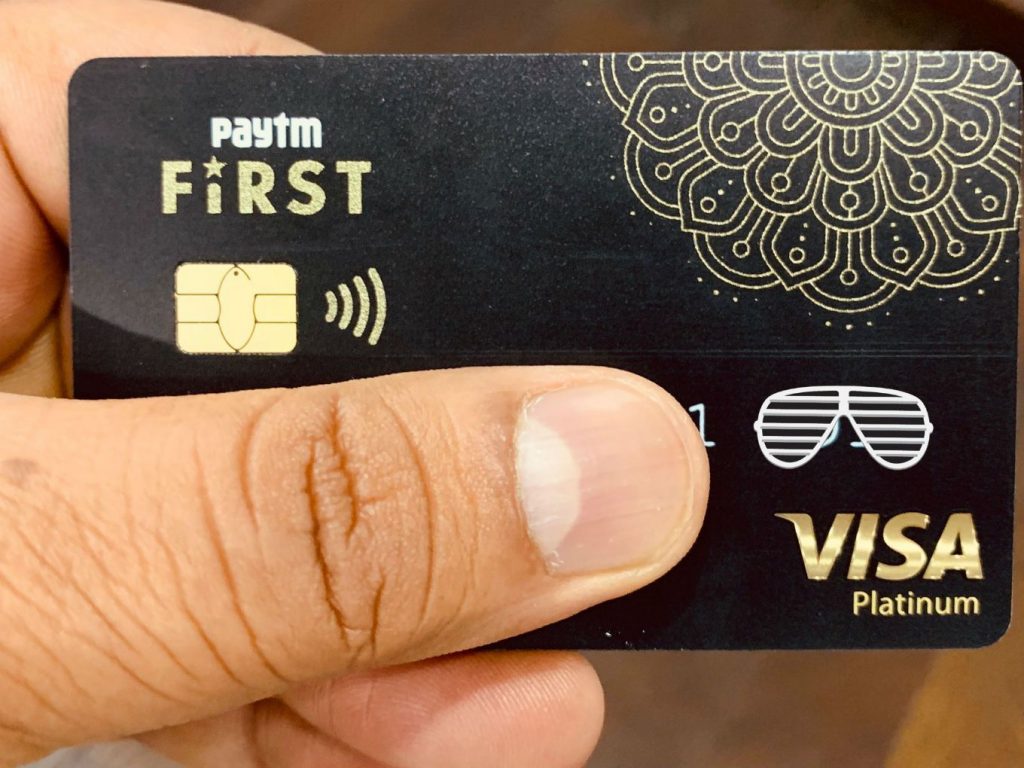
The company has been struggling with maintaining its position in the Indian eCommerce market. And, the company has been trying new strategies to deal with the rising competition. It even launched its own eCommerce platform, Paytm Mall, that too providing huge cash backs for the users. But still, the threats from its rivals are only growing.
“We are delighted to partner with Citi to launch the Paytm First Card. Our new offering is designed to bring the utmost flexibility to our customers in their digital payment options and will help spur large-ticket cashless payments. We are confident of getting a very good response from our customers.” said Vijay Shekhar Sharma, Chairman and CEO – One97 Communications, the parent of Paytm.
Though there are only 50 million people, who actually have credit cards and use for purchases in India, Paytm hopes to make 25 million of Indians to avail its new credit card service. To launch the credit card, the company has partnered with the global payments company Citi Bank. The company will charge an annual fee of INR 500 to the First Card users, and if the spendings of the users will go above INR 50000 per year, the fee will be waved off for those users. The users will also be provided with the offers on dining, shopping, and travel on the platforms having tie-up with Citi Bank.
The customers can apply for the credit card directly through the Paytm app, and the Paytm account passbook will reflect the offers from both Paytm and Citi Bank for the credit card holders. The users with minimum INR 10000 expenditure in a month will be able to avail promo codes of worth INR 10000. The users of First Card will also get the option to pay for goods in easy instalments.
The Citi Bank First card is powered by Visa and is valid internationally. Noticeably, Paytm had just joined its hands with Visa to launch its debit cards last week. The partnership between Citi Bank and Paytm has a long history, and this time, it is an initiative taken to support Paytm’s new subscription-based loyalty program ‘Paytm First’ and retain its users who have been shifting to the other payment apps.

Yashica is a Software Engineer turned Content Writer, who loves to write on social causes and expertise in writing technical stuff. She loves to watch movies and explore new places. She believes that you need to live once before you die. So experimenting with her life and career choices, she is trying to live her life to the fullest.